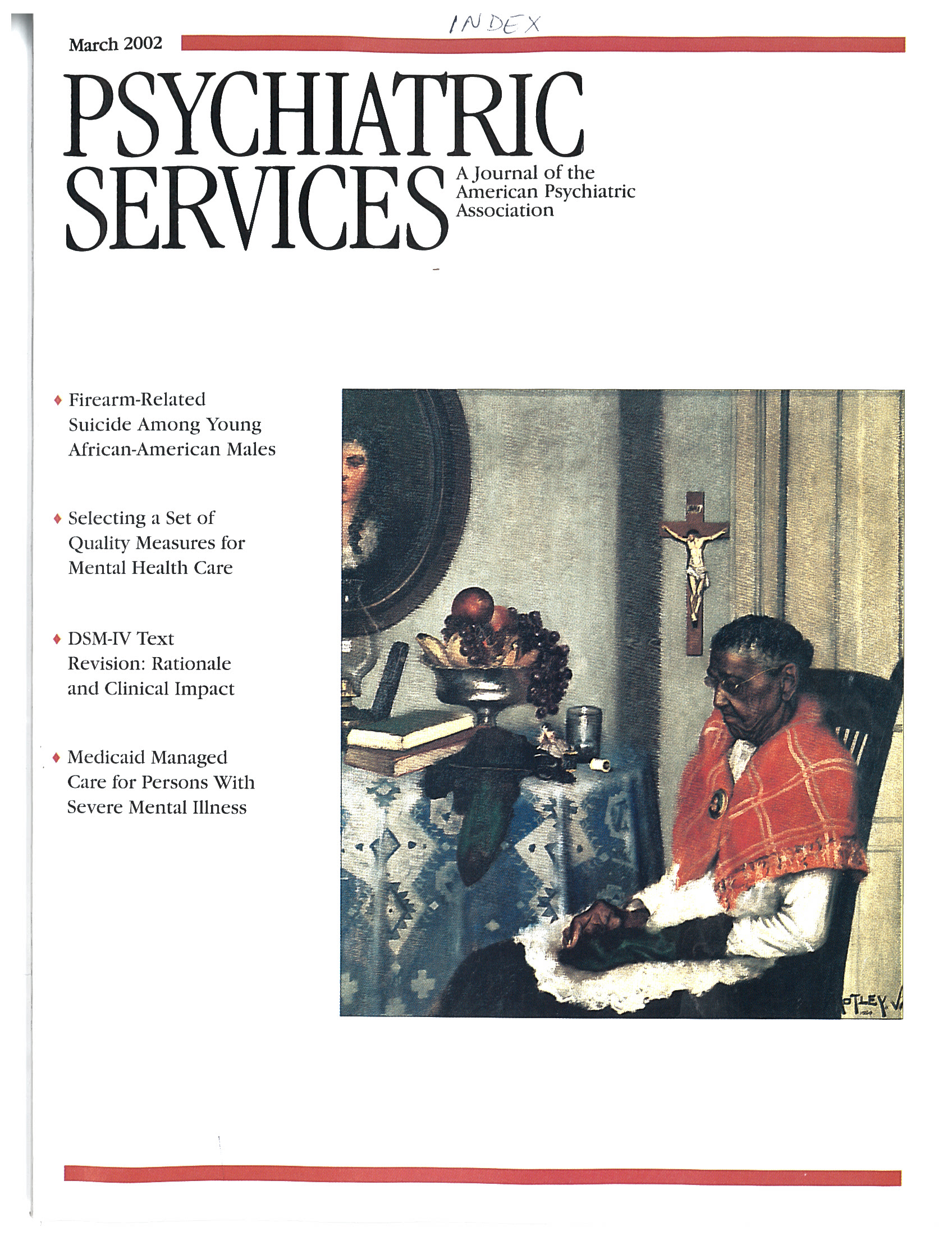The Effect of Financial Risk Arrangements on Service Access and Satisfaction Among Medicaid Beneficiaries
Abstract
OBJECTIVE: The relationship between financial risk arrangements, access to services, and consumer satisfaction with services was assessed in a sample of Medicaid beneficiaries who were enrolled under three different financial risk arrangements for health care and mental health care. METHODS: A survey was mailed to a stratified random sample of 9,449 recipients of Supplemental Security Income. Respondents reported their health and mental health service needs, service use, and satisfaction with services. Access was measured in terms of service needs that were met. RESULTS: Access to services was related to the type of risk arrangement. Respondents who were enrolled in plans that assumed the risk for the cost of services had poorer access to services than respondents who were enrolled in plans that did not assume the risk for the cost of these services. Satisfaction with medical services was negatively related to the plan's assuming the risk for medical expenditures. CONCLUSIONS: Financial risk arrangements may have important implications for service use patterns among persons who have disabilities. Health and mental health policy makers should carefully consider risk arrangements when designing health plans for vulnerable populations.



